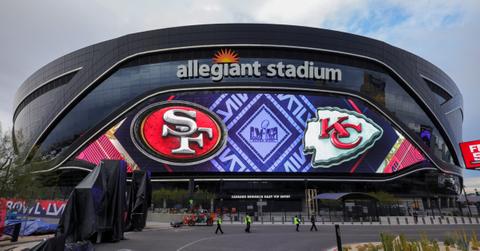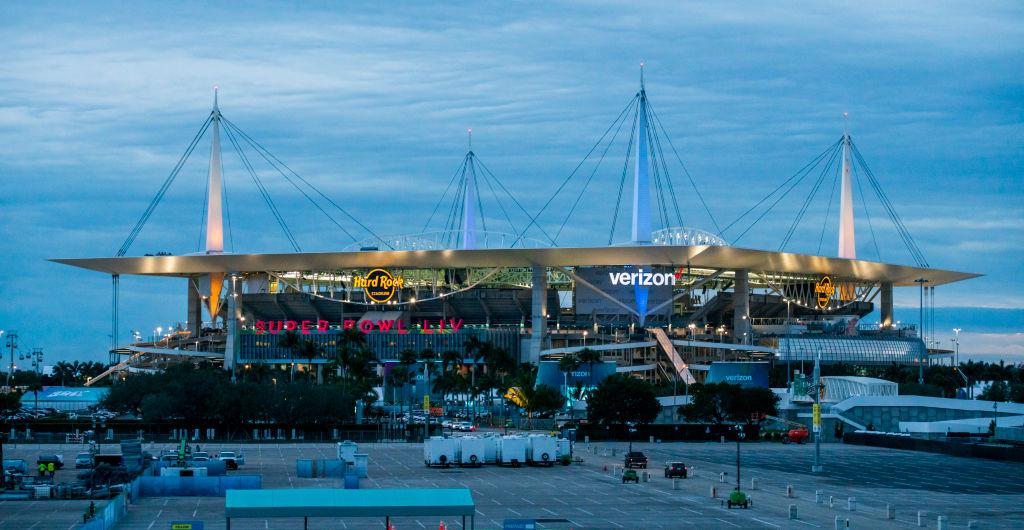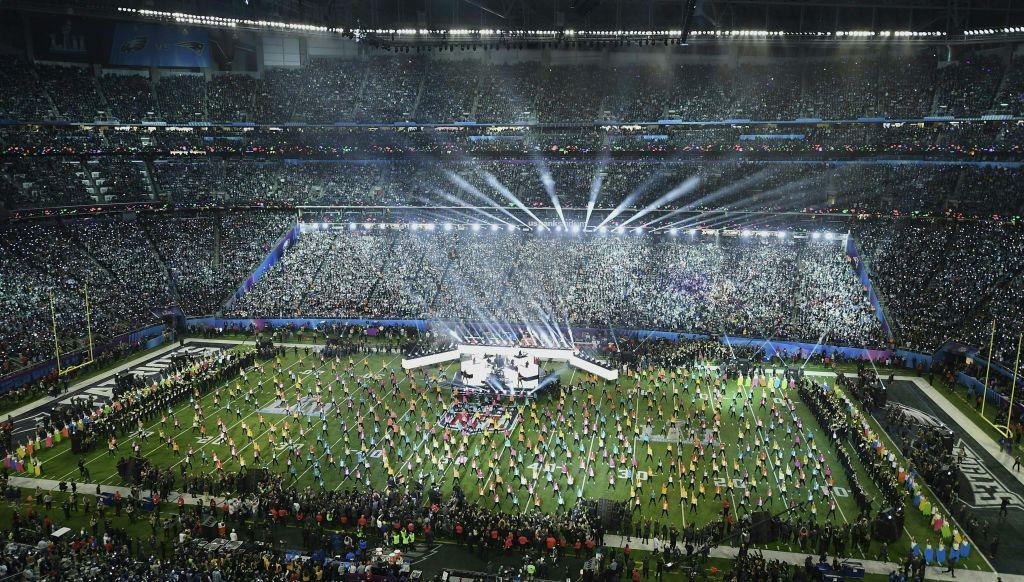FYI, This Is How the Super Bowl Stadium Is Chosen Every Year
Updated Feb. 8 2024, 3:13 p.m. ET

The 2024 Super Bowl is almost here and fans are getting ready to watch the Kansas City Chiefs face off against the San Franciso 49ers. Every year, fans flock from across the country to the city where the game is being held.
But how are the stadiums even chosen? It turns out that the city hosting the event is actually chosen years in advance of the actual game. Is it a weather issue? A venue or space issue? Who gets to decide these things? We did some digging.

How exactly is a Super Bowl stadium chosen?
The promise of warm weather used to be a major factor in how stadiums were chosen for the Super Bowl, but warm locales no longer get dibs, partly because hosting the Super Bowl is a pretty sweet deal that everyone wants in on.
Think about it — thousands will arrive in that city, spending cash on hotel rooms, food, tours, and shops. In 2017, CNBC reported Houston, which hosted the Super Bowl, brought in an estimated $350 million to the local economy.
Cities used to have to be invited to bid for the honor of hosting the Super Bowl, but now, the NFL reaches out to a city that fulfills the requirements and asks if it will host. Then, the chosen city has to negotiate the terms of the hosting gig with the NFL.

The Lucas Oil Stadium in Indianapolis, Indiana in 2012
How far ahead are Super Bowl stadiums booked?
It makes sense that Super Bowl locations are pre-planned and booked way in advance, so super fans can plan ahead. CNN reports, "Preparation for the 2020 Super Bowl started the day the NFL selected Miami in May 2016."
Let's just say organizing the Super Bowl takes more than a Google spreadsheet. It takes years of planning and booking vendors and sponsors. About 10,000 volunteers need to be interviewed and hired. The city also needs to know way ahead of time so that the hotels and restaurants can provide proper accommodations.
The host city also needs to communicate with law enforcement to make sure the stadium and other venues where related events will take place are totally secure. Hosting the Super Bowl is a big win for a city, but it's also a ton of responsibility.
The NFL demands a lot from the city hosting the Super Bowl.
In 2014, the Minneapolis Star Tribune got ahold of a copy of the NFL host-city requirements. They covered everything from access to three "top quality" golf courses during the summer or fall before the Super Bowl to free curbside parking at a yet-to-be designated NFL House — defined as a "high-end, exclusive drop-in hospitality facility for our most valued and influential guests to meet, unwind, network and conduct business."

The US Bank Stadium in Minneapolis, Minnesota in 2018
Where is the Super Bowl this year?
In 2024, Super Bowl LVIII will take place at Allegiant Stadium in Paradise, Nev. on Feb 11. According to the NFL, the venue opens at 11:30 a.m. Then, after the team warmups and player introductions, the national anthem will be sung by Reba McEntire.
Usher is headlining the halftime show, so you know it's going to be one for the books.
Watch Super Bowl LVIII Sunday, Feb. 11 on CBS at 6:30 p.m. EST. It will also stream live on Paramount+.